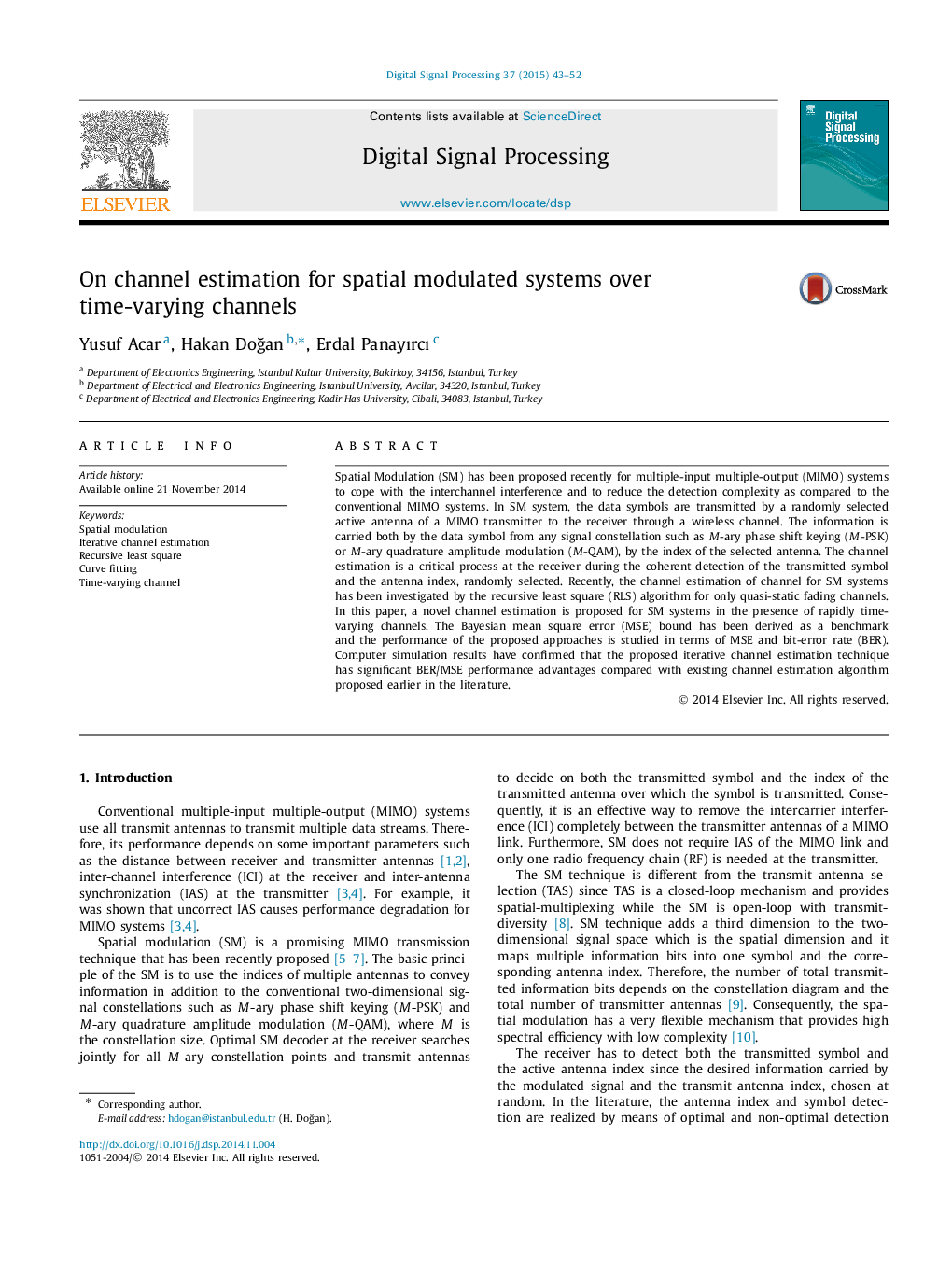| Article ID | Journal | Published Year | Pages | File Type |
|---|---|---|---|---|
| 559573 | Digital Signal Processing | 2015 | 10 Pages |
Spatial Modulation (SM) has been proposed recently for multiple-input multiple-output (MIMO) systems to cope with the interchannel interference and to reduce the detection complexity as compared to the conventional MIMO systems. In SM system, the data symbols are transmitted by a randomly selected active antenna of a MIMO transmitter to the receiver through a wireless channel. The information is carried both by the data symbol from any signal constellation such as M-ary phase shift keying (M-PSK) or M-ary quadrature amplitude modulation (M-QAM), by the index of the selected antenna. The channel estimation is a critical process at the receiver during the coherent detection of the transmitted symbol and the antenna index, randomly selected. Recently, the channel estimation of channel for SM systems has been investigated by the recursive least square (RLS) algorithm for only quasi-static fading channels. In this paper, a novel channel estimation is proposed for SM systems in the presence of rapidly time-varying channels. The Bayesian mean square error (MSE) bound has been derived as a benchmark and the performance of the proposed approaches is studied in terms of MSE and bit-error rate (BER). Computer simulation results have confirmed that the proposed iterative channel estimation technique has significant BER/MSE performance advantages compared with existing channel estimation algorithm proposed earlier in the literature.
